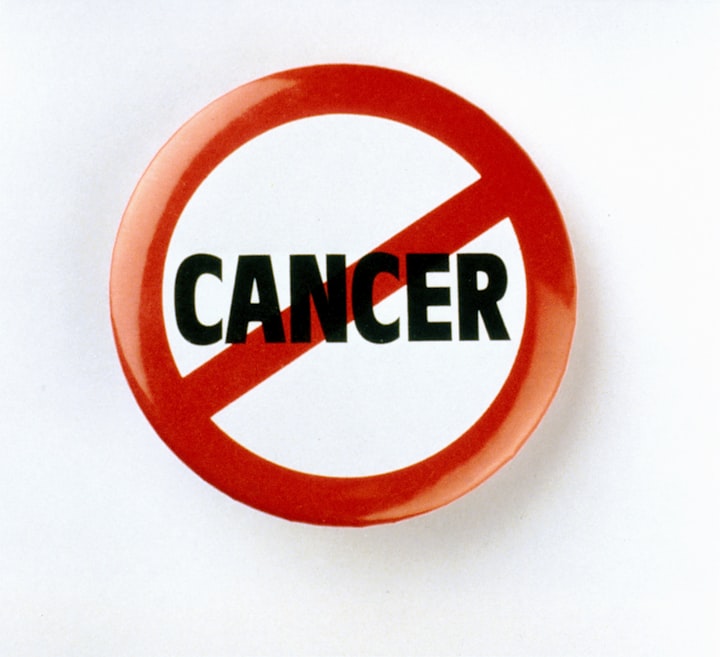
Cancer refers to any one of a large number of diseases characterized by the development of abnormal cells that divide uncontrollably and have the ability to infiltrate and destroy normal body tissue. Cancer often has the ability to spread throughout your body.
Cancer is a group of diseases involving abnormal cell growth with the potential to invade or spread to other parts of the body. These contrast with benign tumors, which do not spread. Possible signs and symptoms include a lump, abnormal bleeding, prolonged cough, unexplained weight loss, and a change in bowel movements. While these symptoms may indicate cancer, they may have other causes. Over 100 types of cancers affect humans.
Tobacco use is the cause of about 22% of cancer deaths. Another 10% is due to obesity, a poor diet, lack of physical activity, and excessive drinking of alcohol. Other factors include certain infections, exposure to ionizing radiation and environmental pollutants. In the developing world, 15% of cancers are due to infections such as Helicobacter pylori, hepatitis B, hepatitis C, human papillomavirus infection, Epstein–Barr virus, and human immunodeficiency virus (HIV). These factors act, at least partly, by changing the genes of a cell. Typically, many genetic changes are required before cancer develops. Approximately 5–10% of cancers are due to inherited genetic defects from a person's parents. Cancer can be detected by certain signs and symptoms or screening tests. It is then typically further investigated by medical imaging and confirmed by biopsy.
Many cancers can be prevented by not smoking, maintaining a healthy weight, not drinking too much alcohol, eating plenty of vegetables, fruits and whole grains, and avoiding too much processed and red meat. Early detection through screening is useful for cervical and colorectal cancer. The benefits of screening in breast cancer are controversial. Cancer is often treated with some combination of radiation therapy, surgery, chemotherapy, and targeted therapy. Pain and symptom management are an important part of care. Palliative care is particularly important in people with advanced disease. The chance of survival depends on the type of cancer and extent of disease at the start of treatment.
In children under 15 at diagnosis, the five-year survival rate in the developed world is on average 80%. For cancer in the United States, the average five-year survival rate is 66%. In children, acute lymphoblastic leukaemia has a five-year survival rate of over 90% in the developed world. In adults, the most common types of cancer are breast cancer, lung cancer, colorectal cancer, and prostate cancer. In 2020, about 9.5 million people died from cancer.
Causes of cancer:
The exact cause of cancer is unknown, but it is thought to be a combination of genetic and environmental factors. Some of the known risk factors for cancer include:
- Smoking
- Obesity
- Lack of physical activity
- Excessive drinking of alcohol
- Certain infections, such as Helicobacter pylori, hepatitis B, hepatitis C, human papillomavirus infection, Epstein–Barr virus, and human immunodeficiency virus (HIV)
- Exposure to ionizing radiation
- Environmental pollutants
- Certain genetic mutations
Types of cancer:
There are many different types of cancer, each of which affects a different part of the body. Some of the most common types of cancer include:
- Breast cancer
- Lung cancer
- Colorectal cancer
- Prostate cancer
- Skin cancer (melanoma)
- Leukemia
- Lymphoma
- Brain cancer
- Stomach cancer
- Pancreas cancer
Symptoms of cancer
The symptoms of cancer can vary depending on the type of cancer and the extent of the disease. Some common symptoms of cancer include:
- A lump
- Abnormal bleeding
- Prolonged cough
- Unexplained weight loss
- Change in bowel movements
- Fatigue
- Pain
- Fever
- Night sweats
Diagnosis of cancer
If you have any of the symptoms of cancer, it is important to see a doctor for diagnosis. The doctor will perform a physical examination and may order a number of tests, including:
- Blood tests
Imaging tests, such as X-rays, CT scans, and MRI scans
Biopsy, which is the removal of a small piece of tissue for examination under a microscope
Treatment of cancer
The treatment of cancer depends on the type of cancer, the extent of the disease, and the patient's overall health. Some common treatments for cancer include:
- Surgery
- Chemotherapy
- Radiation therapy
- Targeted therapy
- Immunotherapy
Prognosis of cancer:
The prognosis of cancer depends on the type of cancer, the extent of the disease, and the patient's overall health. Some types of cancer, such as childhood acute lymphoblastic leukaemia, have a very good prognosis. Other types of cancer, such as pancreatic cancer, have a poor prognosis.





Comments
There are no comments for this story
Be the first to respond and start the conversation.